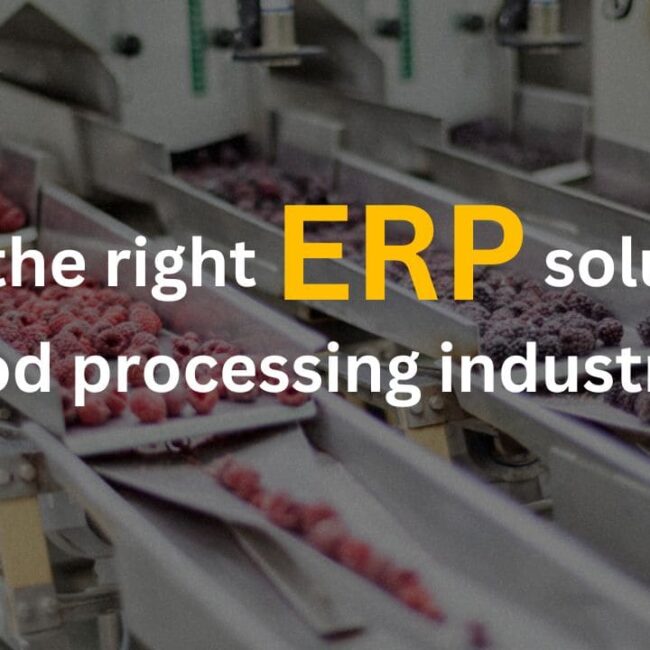ERP for Financial Services Industry
Transforming Accounting Processes: ERP Systems for Financial Management
The Financial Services Industry stands as one of the most adaptable sectors globally, constantly evolving to meet changing demands. ERP systems offer a comprehensive suite of features tailored to streamline financial management tasks effectively. This software facilitates the automation of routine activities such as journal entry management, tax computation, and handling transactions in multiple currencies. It seamlessly manages various banking operations, including payment processing, bank statement imports, and account reconciliation, ensuring smooth functionality without complications. Additionally, migrating to a cloud platform using ERP is the optimal choice for a fast-paced industry like Financial Services.
Let’s explore how ERP benefits the Financial Services Industry:
Order to Cash
ERP solutions for financial services facilitate the entire process from Order Management, procurement based on Sales Orders, Credit Management, order fulfillment, and shipping, to Accounts Receivable Customer Invoicing and Incoming Payment.
Management Information System (MIS) Reports play a crucial role in maintaining business control through ERP. Customer Item Codes are stored as BP Catalog Numbers item-wise, enabling swift processing and tracking. Sales BOM solutions streamline scenarios where accessories are procured separately but delivered to customers as a single item.
Backorder reports provide a detailed overview, ensuring expedited order processing within the Financial Services Industry.
Procure to Pay
Procurement is initiated based on customer orders, facilitated by the procurement wizard function, which directly generates Sales Orders (SO) and Purchase Orders (PO). Goods receipt is performed against the Purchase Order, with items allocated in the store batch-wise. Accounts then generate payable invoices, followed by outgoing payments. Vendor item codes are maintained through BP Catalog Numbers. Control mechanisms such as purchase analysis, pricelist, and approval for price changes, along with price change reports, minimize errors.
Sales Order (SO)
Sales Orders are created upon PO generation or confirmation of quotations by customers. Utilizing a Document Management System (DMS), the softcopy of the PO is attached. Payment terms and delivery dates are automatically populated based on customer master data, with salesmen restricted from further PO orders by credit limit management.
Sales Quote
Sales quotations are generated via ERP for Financial Services, with fields like ‘Ship to’ and ‘Bill to’ auto-populated from Business Partner Master Data. Accounting and payment terms, along with contact persons, are also auto-populated. Quotations are directly emailed to customers in the Financial Services Industry using ERP software.
MRP
ERP systems enable Material Requirements Planning (MRP) to facilitate the creation of purchase requests or direct POs for preferred suppliers daily, weekly, or monthly based on Sales Orders.
Purchase Request
PRs are automatically generated by MRP, with manual creation also possible department-wise for office equipment, consumables, etc., against which POs are issued.
Purchase Order
POs are generated order-wise using the procurement wizard, with PDFs mailed directly to vendors from ERP systems. Engineering data stored in the item master is auto-fetched, reducing errors. Order-wise PO reports, expanded item-wise, provide comprehensive record-keeping and control.
Goods Receipt PO (GRPO)
Upon vendor delivery, Goods Receipts against POs are posted, with serial numbers allocated to each item quantity, debiting the inventory.
Supplier Payment
An Accounts Payable (AP) invoice is added based on GRPO, followed by outgoing payments.
Production
Sales BOM functionality is employed to streamline production processes.
Invoicing
Accounts Payable/Receivable invoices are generated, and payment entries are posted, ensuring proper control via an open document system.
Service
ERP systems efficiently manage after-sales services for each serial item.
These processes showcase how ERP benefits the Financial Services Industry, enhancing operational efficiency and overall performance.
What exactly is ERP, and how does it benefit the financial services industry?
Enterprise resource planning (ERP) means putting together all the important tasks a business does, using software and technology to do them at the same time and quickly. ERP for Financial Services integrates core business processes such as accounting, human resources, supply chain management, and customer relationship management into a single platform. It offers a centralized database and a unified interface, enabling seamless communication and collaboration across various departments within an organization.
To learn more about Services visit: https://erpdoctor.in/






